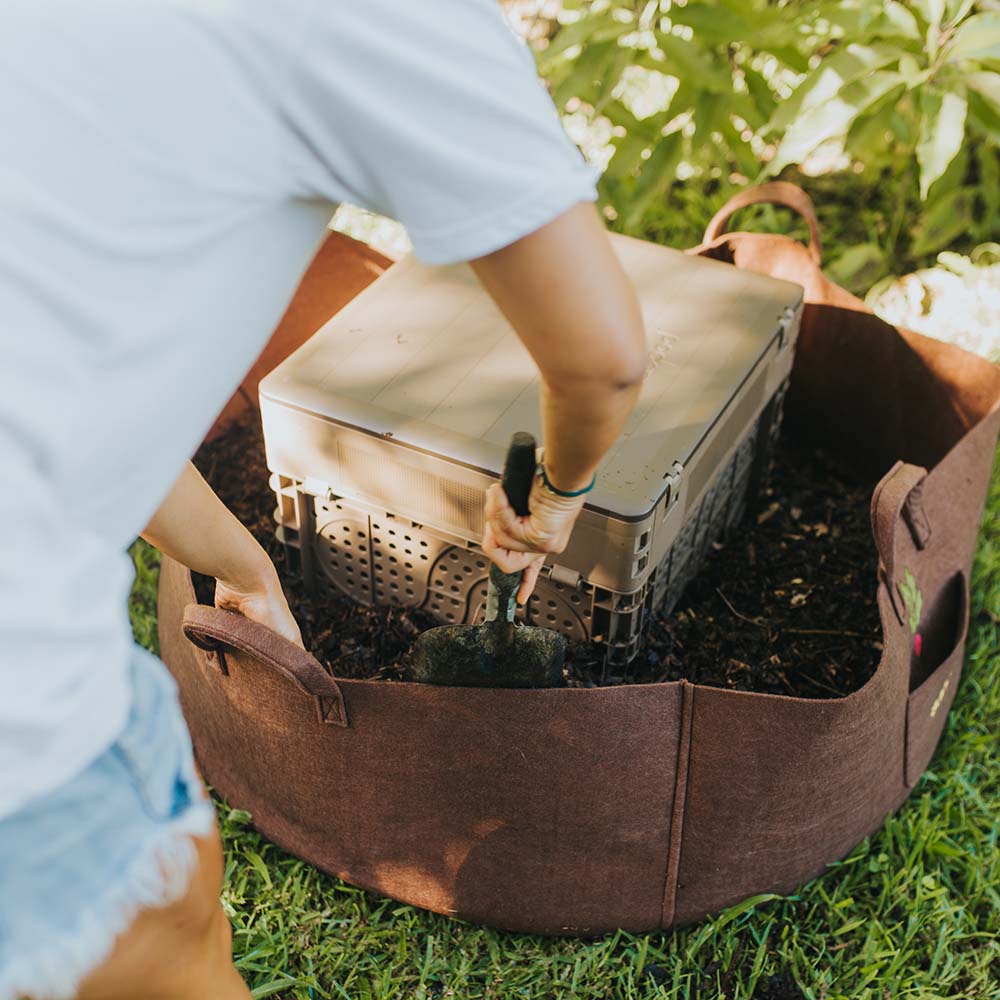Whether you're an experienced home gardener or an absolute beginner, a selection of herbs is a great addition to your kitchen garden. Used either for cooking purposes or their medicinal properties, herbs are readily available and easy to grow. They require very little input to produce consistent and delicious harvests!
One of the things we love about herbs is their versatility. Whether you live in an apartment or a home with a huge back yard, you can find space to successfully plant and grow herbs. They’re as happy on a sunny windowsill as in a greenhouse or a garden bed. Wherever you plant your herbs, the nutritious compost made in a Subpod worm farm will help keep them healthy and lush.
Not all herbs are created equal, and the ones you choose to plant will depend largely on your tastes and personal needs. Everyone around the Subpod office has their favourites and for different reasons, so we clubbed together and decided on the five most rewarding herbs to grow. In no particular order, here they are:
Mint
What would a herb garden list be without mentioning mint? This ubiquitous little plant is a vigorous grower, and for this reason it's a popular choice around the world.
With an easily recognisable and strong flavour and scent, mint can be used in many culinary ways, from being a tasty addition in salads and dishes to teas and even cocktails (mojito, anyone?) It also has medicinal uses, popularly recognised as a remedy for digestive problems.
If you choose to grow mint, you have a few varieties to choose from, such as spearmint, chocolate mint and peppermint. They all grow fast and spread out a lot, so give them space or plant them in a pot to prevent them disturbing other plants. Trim them regularly to keep them in check, and think about replacing your plant every three years to maintain strong flavours.
Basil
The well-loved and widely-grown herb basil is a member of the mint family, and a popular addition to many recipes. The good news is this annual crop is easy to grow, readily taking root in gardens, greenhouses and containers.
There are many varieties out there, but ‘sweet basil' is the most common for cooking. When planting, choose a sunny spot with well-drained soils. Basil prefers warmer temperatures, and also prefers being watered in the morning rather than at night. You can plant it from seed or choose to buy a seedling from the supermarket.
To harvest basil, just remove leaves as required and use them in your cooking! Pesto is an enduring favourite, but basil also brings zest to meat dishes, salads, soups and more.
Dill
Dill has had a revered place in cuisine across Europe and Asia for hundreds of years, and for good reason. It has a unique taste and feathery textures, making it a delicious and attractive garnish. It works particularly well with seafood, with salmon lovers in particular speaking very highly of it.
There are a number of varieties of Dill, with ‘bouquet’ being the most common. If you’re growing it indoors you may want to choose a compact variety like ‘fernleaf’ or ‘ducat’. Dill doesn’t like being disturbed or transplanted, so plant it where it will grow. Water the plants regularly without the soil becoming waterlogged. Harvest the leaves, which can be used fresh or frozen for later.
Parsley
Parsley is easy to grow from seeds or seedlings, flourishing if given enough water and adequate amounts of sunlight. There are two varieties, flat leaf and curly, with the flat leaf variety being more popular in the kitchen because of its stronger flavour.
You can grow parsley in pots indoors, and it also makes an attractive edge to vegetable beds in the garden. If you’re growing from seed, be patient because they take around a month to germinate. When they do come through, thin them out to around two-centimeters between the plants.
Harvest your parsley regularly by trimming the leaves, as this will encourage healthy growth. It has plenty of culinary uses, from a garnish to soups, to a key ingredient in salads, marinades and dressings.
Rosemary
Rosemary is a tough herb that's easy to grow, making it a regular resident in herb gardens all across the world. Woody and evergreen, rosemary is as happy in a container as it is in a garden bed. It does love full sun though, and try to avoid overwatering as this will cause root rot.
Going exceptionally well with lamb dishes, rosemary has a strong aroma that makes it work as a natural air freshener. It can be used in essential oils and tea too, and is known to be good for your memory.
Compost For Your Herb Garden
There you go! Hopefully you can see how herbs are an easy and useful addition to your kitchen garden. Your herbs will thrive with compost from your Subpod worm farm, so why not take a look at some of the home vermicomposting solutions we offer below? Subpods are simple to set up, easily slotting into your lifestyle to make composting a hassle-free part of your day-to-day life.
Until next time, happy gardening and composting!
Are you getting into home gardening?
Get into home composting too! Subpod worm farms create nutritious compost for your vegetables and herbs. Check them out!







Leave a comment
This site is protected by reCAPTCHA and the Google Privacy Policy and Terms of Service apply.